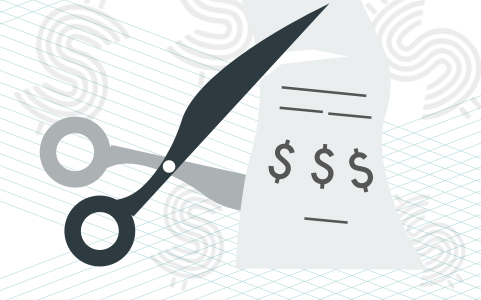8 Tax Deductions You Need To Know Right Now

Come tax season, everyone should try and get a little something back, and businesses are no exception. Tax deductions won’t save a floundering business from closing up shop – but to the shrewd business owner, they can make the difference between a good year and a great year.
Note: The deductions listed below may not be recognized in your area. Be sure to consult a tax specialist for more information on how you can save your business money through prudent financial planning.
1. Get Networking and Get a Deduction
Remember that expenses like membership fees to professional organizations are completely deductible, so you’ll never have to make the hard choice between getting the inside edge on a potential client or paying annual membership in order to attend networking events. Professional fees and licenses are also deductible.
2. Real Estate Interest
If your business owns a physical location or any real estate, be sure to claim the entire amount of interest you paid during the year.
3. Maintenance and Repair Fees
You spend money keeping your machinery and equipment in proper working order, and these amounts are often deductible. Just be mindful that you might run into exceptions if the repairs add additional value to the property. Your accountant should flag those circumstances.
4. Meals and Entertainment
Meeting a client? Attending a business lunch? You don’t necessarily have to pay completely out of pocket. Claim a meals and entertainment deduction equal to 50% of the amount you paid for attending these activities. A $40 lunch may not sound like a big deal, but over the course of the year it adds up to more than you might think.
Tip: Before you leave the table, turn the receipt over and write who you were there with and what you discussed. This little note will help justify your claims in the event of a future audit.
5. Your Car
Let’s face it – if you’re using your personal vehicle to get the job done and keep your clients happy, then you should be compensated for mileage, gas, wear and tear. Keep a logbook in your glove compartment to write down when you’ve used your personal vehicle for business use. Or go digital and use an app like MileIQ or TaxMileage that keeps it all logged on your smartphone. If you want to avoid the headache altogether, ask your accountant about your tax rules – you may be able to simplify your car expenses by using a percentage of total costs as your business deduction.
6. Bad Debt
If you have a customer that hasn’t paid their due for your products or services, or maybe they’re simply taking too long to pay, then your accounts receivable is at risk of becoming bad debt. In spite of the name, bad debts aren’t “all bad” – as these amounts can be deducted.
But in the end, nobody likes bad debts. So if you’re keen on avoiding them altogether, consider factoring your accounts receivable. Full disclosure – this is a service we offer at Liquid Capital, and we’ve seen this strategy work very well for clients over and over again.
Factoring means that you sell your accounts receivables to a third party company and they will do all the work to collect from your client. While you may not be collecting the full face value of your A/R, the trade-off is quite beneficial. You’ll get certainty that you’ll be paid, your cash flow is instantly increased with money at hand, and the cost of factoring is fully tax deductible.
7. Travel Deductions
Depending on your business, you may spend a considerable amount of time and money on the road meeting clients, stakeholders, suppliers and attending conferences. Any costs for transportation and lodging while out of town on a business trip are deductible. Sadly, regular local commuting is not, so that could be a benefit to attending an out-of-town event.
8. Advertising
Advertising and promotion could also fall under your tax deductions as the “cost of doing business.” Some business owners shy away from advertising because the costs lower your profits, but keep in mind that this also lowers your taxable income. And the rewards of additional advertising could bring significantly higher future revenues. You’ll have to determine the right balance of cash in hand vs. advertising for future growth.
In the end, it’s always important to talk with your accountant about all expenses and tax deductions. What may be an acceptable deduction this year may not be the same next year.




